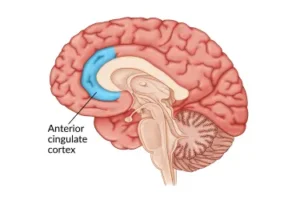TMS For OCD
Transcranial Magnetic Stimulation (TMS) For Obsessive Compulsive Disorder (OCD)
What is OCD ?
Before discussing TMS for OCD, let’s make sure we are on the same page about what OCD is. OCD is characterized by repetitive, unwanted thoughts (obsessions), and the behaviors (compulsions) that a person has to perform to reduce anxiety. One of the challenging aspects of OCD is the time it takes to focus on the intrusive thoughts or the time spent engaging in ritualistic behavior trying to relieve stress.
Obsessive-compulsive disorder (OCD) is the 4th most common mental health disorder that affects people in the United States. Estimates show that OCD affects 2-2.5% of Americans. Before learning about TMS for OCD, click here to learn more about OCD in general.
Obsession vs. Compulsion
Obsessions can come in the form of images, urges, fears, or intrusive thoughts. Examples:
- Fear of germs
- Fear of hitting someone with your car
- Constant thoughts of hurting another person (even though you don’t want to hurt anyone)
Compulsions are behaviors or mental acts that occur to reduce anxiety-provoking thoughts or feelings. Examples:
- Excessive hand washing to combat fear of germs
- Circling the block to make sure you didn’t hit someone with your car.
It is unclear what causes OCD, but it is likely a combination of biological and environmental factors. An overstimulated cortical-striatal-thalamic-cortical (CSTC) pathway is theorized to exist in patients with OCD.
How Is OCD Typically Treated?
A combination of an SSRI medication and ERP (exposure and response prevention) is the recommended treatment for Obsessive Compulsive Disorder. ERP is an effective therapy for OCD. The increase in serotonin from SSRIs is also very effective for the treatment of OCD.
Common medications (SSRIs): Prozac, Lexapro, Luvox, and Zoloft
Common therapy modalities: Exposure and Response Prevention and Cognitive Behavioral Therapy
- The exposure component of ERP refers to confronting the thoughts, images, objects, and situations that make you anxious and/or provoke your obsessions.
- The response prevention part of ERP refers to making a choice not to do a compulsive behavior once the anxiety or obsessions have been “triggered.”

TMS For OCD vs. TMS For Depression
Traditionally, TMS is for treating Major Depressive Disorder. MDD is what TMS received its initial FDA approval for in 2008. The target location to treat depression is the Left Dorsolateral Prefrontal Cortex (LDLPFC). The surface of the LDPFC is a doorway to the limbic system— where depressive symptoms are most readily treated. TMS sends magnetic pulses to the surface of the DLPFC, which will prompt stimulation into the deeper areas of the brain towards the limbic system. Only utilizing the surface of that target location limits the possible side effects, while maximizing the benefits.
TMS for OCD has been FDA-cleared for certain machines since 2018. The current machines cleared for treatment of OCD are MagVenture, Brainsway, and Magstim. The difference between TMS for OCD and TMS for MDD is that the OCD treatment location targets the Dorsal Medial Prefrontal Cortex (dmPFC) and the Anterior Cingulate Cortex (ACC) on both sides. These target areas are reached via the frontal lobe. There is also the supplemental motor cortex (SMC) that is targeted using the TMS coil.
TMS for OCD can be fcMRI-guided if you’re interested in maximizing treatment results. Click here to learn more about the benefits.
Does Insurance Cover TMS For OCD
Insurance companies do not yet cover TMS for OCD. Currently, they only cover TMS for depression. If you are interested in treatment for OCD with TMS, you would have to pay out of pocket. The cost of treatment will depend on the individual provider that you receive treatment from. Hopefully, this will change as more evidence of effectiveness is documented.
Summary of TMS For OCD
Exposure-response therapy and antidepressant medication in combination can be very effective for treating OCD. If these traditional treatments don’t work, TMS is another great option that can offer relief. Despite studies showing that it is safe and effective, insurance companies are not yet willing to cover the treatment. This could change over the next few years, as insurance companies have recently lowered the criteria for approving TMS for depression (4 medications in the past, 2 medications now).
If interested in scheduling an appointment, use the “Book A Discovery” button or enter your information below. A representative will contact you in the order your request was received. Office is located in Glendale, CA.
